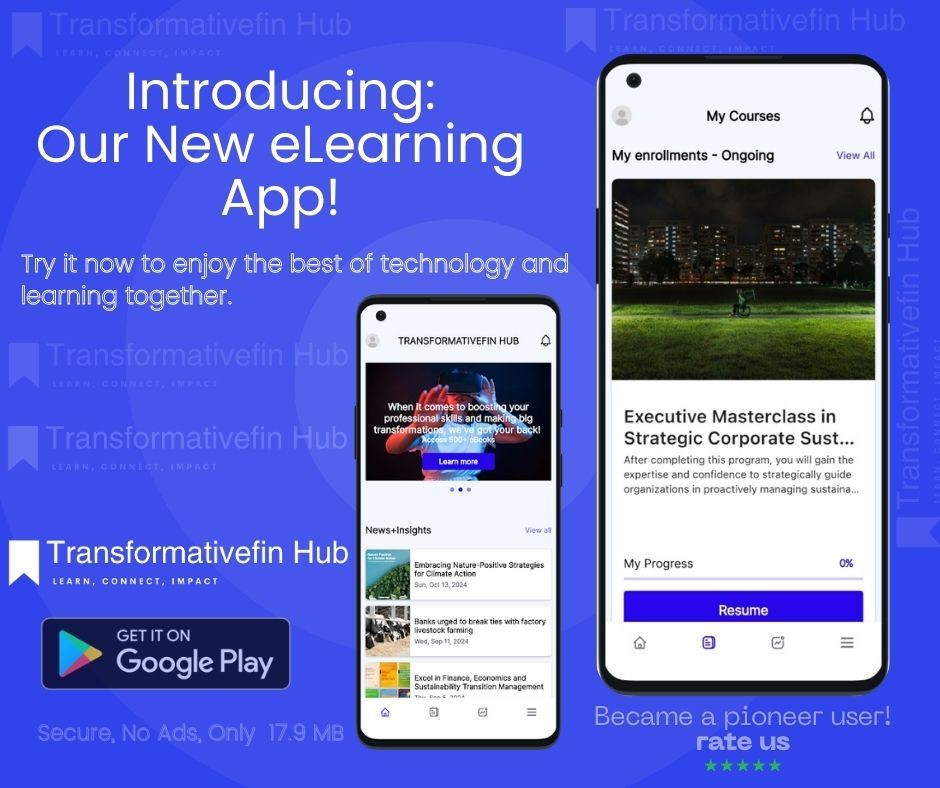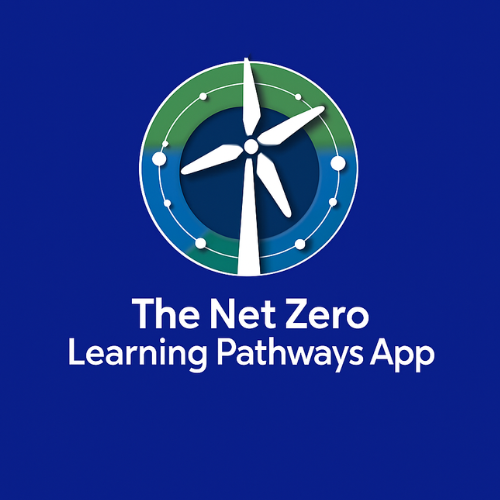-
Format: Online
-
Level: Advanced
-
Study: 6 Months
-
Start: Jun 1, 2025
-
Fee: 500
What you will learn:
Module 1: Global Sustainability Goals and Policy Trends
Explores the global context for sustainable finance, including international development goals, climate agreements, and the funding challenges facing developing economies. It lays the foundation for why sustainable finance is a necessary evolution in capital markets and public policy. Fellows will understand the scale of financing needed (trillions annually) to achieve sustainability goals and how global commitments shape national investment priorities.
Module 2: Global Financial System Architecture and Stakeholder Strategies
Maps the ecosystem of sustainable finance – from public finance to capital markets – and examines how different stakeholders (governments, donors, banks, institutional investors, corporations) are redirecting capital flows toward sustainability. Fellows will see how policy tools, financial instruments, and collaboration models fit together in an emerging “sustainable finance architecture.”
Module 3: Sustainable Finance Frameworks, Standards, and Regulations
Covers the essential frameworks, standards, and regulatory initiatives that underpin sustainable finance globally. As sustainable finance matures, a host of reporting standards, taxonomies, and risk management guidelines have emerged to define what is “sustainable” and how to measure and disclose it. Learners will master how these frameworks drive market behavior, shape disclosures, and manage risks. The module also contrasts approaches in advanced economies vs. emerging markets, ensuring fellows can navigate both contexts.
Module 4: Sustainable Financing Instruments and Mechanisms
A deep dive into the financial instruments and mechanisms that channel capital into sustainable investments. From debt instruments like green bonds to blended finance facilities and insurance solutions, fellows will gain practical understanding of how these products are structured, issued, and utilized at scale. The module emphasizes how to use these instruments and mechanisms in mobilizing finance for climate projects, balancing public and private interests, and managing risks.
Module 5: Data, Tools, and Emerging Technologies in Sustainable Finance
Explores the rapidly evolving data and technology landscape enabling sustainable finance. Fellows will examine how ESG data platforms, financial modeling techniques, and geospatial tools are applied in investment and risk analysis. The module also delves into climate-related datasets and how technology—from AI to blockchain—is transforming finance transparency, measurement, and product innovation. Learners will build confidence in working with sustainability-linked data to support investment and institutional decision-making.
Specialization Track A — Government, CSO and Corporate Finance (Strategy Pathway)
This specialization is tailored for fellows pursuing roles in public sector leadership or international donor agencies. It builds on the core modules with an emphasis on strategy development, resource mobilization, policy leadership, and cross-sector collaboration. Fellows will be prepared to establish climate finance units in ministries, craft national climate finance strategies, drive whole-of-government initiatives, manage climate funds and debt instruments, and champion sustainable finance across public and private sectors.
Module 6A: National Sustainable Finance Strategy
Trains participants to design comprehensive sustainable finance strategies at both the national government level and within corporations. It emphasizes aligning financial roadmaps with climate and sustainability goals (NDCs, SDGs) and integrating ESG principles into economic planning and corporate financial management. Fellows learn to bridge public and private approaches, recognizing the differences but also synergies between national and corporate strategy perspectives.
Module 7A: Resource Mobilization and Debt Management
Equips fellows with skills to secure and structure financial resources for sustainability objectives, while maintaining sound debt management. It covers domestic resource mobilization (like green taxes and bonds), innovative fundraising, and prudent debt strategies in the context of climate finance. By the end, fellows will be able to design financing strategies that draw from diverse sources – public, private, domestic, international – and manage the debt and fiscal risks associated with scaling up climate investment.
Specialization Track B — Financial Institutions and Asset Management (Investment Pathway)
Track B is designed for fellows aiming to lead sustainable finance within banks, asset managers, or other financial institutions. It dives into advanced topics in portfolio management, ESG risk analysis, and stewardship from the perspective of the financial sector. Fellows will gain the expertise to transform financial institutions from having minimal ESG capacity to becoming market leaders in green finance. They will learn to construct ESG-optimized portfolios, integrate climate risks into risk management, measure and report on sustainability performance, and fulfill stewardship responsibilities to drive real economy impact.
Module 6B: Sustainable Portfolio Construction
Provides techniques for constructing and managing investment portfolios that achieve financial objectives while also meeting ESG and sustainability criteria. Covering asset allocation, integration strategies, and climate scenario alignment, it prepares fellows to allocate capital in line with both returns and responsibility.
Module 7B: ESG Risk Management and Analytics
How financial institutions manage ESG and climate-related risks across their portfolios and balance sheets, integrating these risks into enterprise risk management frameworks. Participants will learn to identify different types of ESG risks, quantify and model these risks, embed them into credit and investment processes, and navigate evolving regulatory requirements.
Module 8: Stakeholder Engagement and Impact Maximization
About soft skills and cross-cutting strategies needed to drive sustainable finance initiatives to success. It emphasizes collaboration across different stakeholders – public, private, civil society – and ensuring that sustainable finance delivers real development impact. Fellows will gain skills in coalition building, monitoring and evaluation of climate programs, advocacy for policy change, and transparency/accountability measures. This module ensures fellows not only design good financial solutions, but also can lead the process of implementing them in an inclusive and results-oriented way.
Module 9: Capstone Roadmap, Assessment & Credential Award
Assesses learning by requiring fellows to articulate a clear roadmap for sustainable finance leadership in their institutional or national context. Each participant will submit a practical case study or strategy outline — a forward-looking plan detailing key actions, reforms, or investments they intend to champion and the anticipated impact. Fellows will receive expert feedback on feasibility, alignment, and leadership potential.
Do you want to become a Specialist in Green and Sustainable Finance and Investment?
A customized learning path
Each participant is automatically directed to different sessions and resources depending on their needs, interests, current knowledge and evaluation of the practice tasks.
Dedicated learning assistant
Each participant is assigned to a dedicated eLearning assistant responsible for making your study as smooth as possible. You can chat your learning assistance at anytime for any reason, including system or content related.
Relatable practice tasks
Our experts review and provide feedback to every practice task summitted. At the end of each module, participants have the opportunity to chose practice tasks relevant to their current or desired role and sectors.
Access to privileged resources
Our exclusives include an eLibrary and expert led webinars designed to offer current knowledge and enable participants to deeply explore topics of their interest. You gain free access for at least two years from the date of enrollment.r
Thank you!



